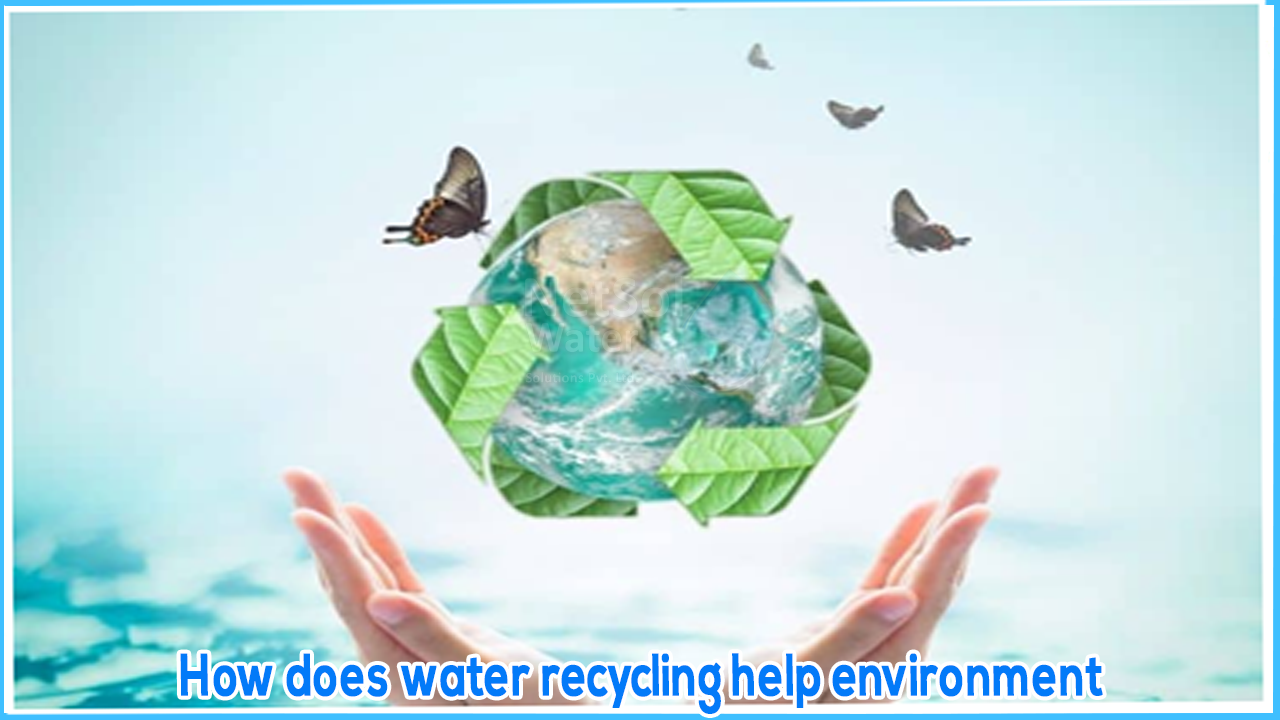The water on the Earth now is the same water that existed when the planet was created. Recycled water, both naturally occurring and as a product of human technology, makes this possible. Water recycling in the human population uses technology to speed up the process by reusing waste water for purposes like irrigation, flushing a toilet, or filling up a groundwater basin. Industrial recycling is another popular type of water recycling, in which an industrial facility reuses "waste" water on site for activities like cooling.
Reusing treated wastewater for beneficial applications like agricultural and landscape irrigation, industrial activities, toilet flushing, and replenishing a ground water basin is known as water recycling (referred to as ground water recharge). Water recycling saves both resources and money. Treatment of wastewater can be adjusted to satisfy the water quality needs of a planned reuse. Landscape irrigation with recycled water requires less treatment than drinking water with recycled water.
RECYCLING WATER HAS ENVIRONMENTAL BENEFITS
When you recycle the water you use in your location, you eliminate the need to obtain water from other sources. Many regions with abundant clear water have sensitive ecosystems that suffer when the water is taken away. It is easier for regions like the wetlands to retain their water supply when the water is recycled.
Recycling water not only keeps it out of sensitive habitats, but it also keeps wastewater out of bodies of water like the ocean or rivers.Recycling water reuses wastes such as sewage rather than dumping it into a river or ocean, where it could pollute the environment and damage aquatic life.
Water recycling allows us to maintain fresh water while also benefiting the environment, including wildlife, plants, and sea animals. With the "Go Green" philosophy, reusing water for irrigation allows for ecosystem preservation.
Water recycling benefits the environment in a variety of ways-
1.INCREASING IRRIGATION BENEFITS
While wastewater can have serious consequences for rivers and seas, the Environmental Protection Agency warns that recycled water often has qualities that make it ideal for irrigating and fertilizing crops. Recycled water frequently contains high quantities of nitrogen, which is a necessary fertilizer for plants but is harmful to aquatic life.
2.ENHANCES WETLANDS
Wetlands benefit the ecosystem in a variety of ways, including housing species, reducing floods, enhancing water quality, and providing a safe breeding site for fish populations. Recycled water can often be added to dried wetlands to help them re-establish themselves as lush habitats.
3.ENSURES WATER SUPPLY IN THE FUTURE
When water is taken from rivers and oceans for purposes such as irrigation and wetlands, it depletes the drinking water supply. When you recycle water and use it instead of drinking water, you reduce the amount of water that is lost. This ensures that future generations have access to the greatest amount of water possible for their drinking needs.
4. MAINTAIN AQUATIC HABITATS
Fresh water is required for the growth and reproduction of aquatic inhabitants, fauna, and plants. The amount and quality of fresh water have declined as a result of industrial, irrigational, and commercial water usage. This has turned into a serious threat to habitats that rely on fresh water. This issue can be remedied by companies and irrigational sectors employing recycled water, which could help to maintain fresh water for aquatic inhabitants, wildlife, and plants.
5.POLLUTION REDUCTION
Pollution loadings in oceans, rivers, and other bodies of water are reduced when pollutant discharges are restricted. Furthermore, some compounds that are pollutants when discharged into a body of water might be beneficially reused for irrigation in specific instances. Recycled water, for example, may have higher levels of nutrients like nitrogen than drinkable water. Recycled water can be used for agricultural and landscape irrigation, providing an extra supply of nutrients and reducing the demand for synthetic fertilizers.
6. SAVES ENERGY
As the demand for water rises, more water is extracted, treated, and transported, often over long distances, requiring a significant amount of energy. If the local source of water is ground water, as more water is extracted, the level of ground water drops, increasing the energy required to pump the water to the surface. Recycling water on-site or nearby saves energy by reducing the amount of energy required to transport water over long distances or to pump water from deep inside an aquifer. The energy required to treat water is also reduced when water quality is tailored to a specific water usage.The water quality needed to flush a toilet is less strict than that required for drinking water, and it takes less energy to obtain. Reusing lower-quality recycled water for purposes that do not necessitate high-quality water saves energy and money by lowering treatment requirements.
CONCLUSION
Water recycling has been shown to be an efficient and effective method of generating a new and reliable water supply without endangering public health. Nonpotable reuse is a generally accepted method that will only become more popular in the future.Water recycling will become more important in our overall water supply as water energy demands and environmental needs expand. Water recycling, coupled with water conservation and efficiency, can help us manage our important water resources sustainably if we work together to solve hurdles.



